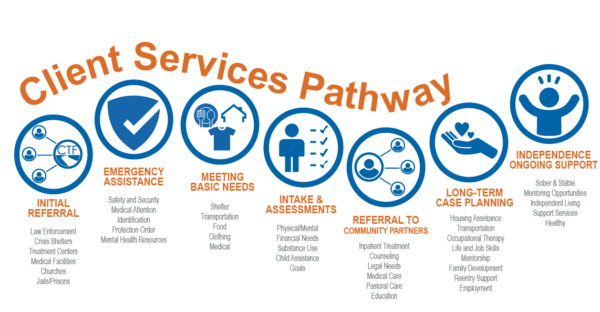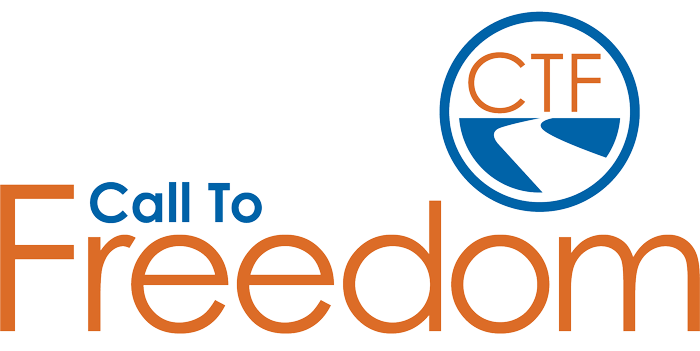Clinical Services Pathway: Emergency Assistance
“The righteous cry out, and the Lord hears them: he delivers them from all their troubles.” Psalm 34
The second step of the Client Services Pathway is Emergency Assistance. This stage focuses on meeting the individual’s most urgent needs, such as safety and security, medical attention, a protection order, or mental health resources.

According to figures from the Polaris Project, in 2021, the National Human Trafficking Hotline received calls involving 16,554 individual victims of human trafficking. Likely an undercount due to under identification, data from the hotline paints a frightening picture—we’ve identified thousands of survivors and have barely scratched the surface. Traffickers control victims by any and all means necessary, including dictating where they go, what activities they engage in, and whom they speak to. They are often denied basic needs, and many have been manipulated through addiction or are coping via what is available to them or forced upon them.
Due to the nature of the crimes, they’ve endured, many survivors arrive at Call to Freedom with only the clothes on their backs and are in “survival mode.” Severe trauma can cause the brain to function in a different capacity, reacting impulsively to maintain self-preservation. A brain in survival mode tells the body to limit itself to essential functions only. In this state, a survivor’s primary concerns are their basic and immediate needs: safety; shelter; medical and dental care; food; and clothing. If a nonprofit cannot provide for these basic needs, a survivor is likely to flee, including back to his/her trafficker. Call to Freedom therefore places an emphasis on providing emergency assistance immediately upon referral.
McKenzie Huska, Director of Marissa’s House & Outreach Services for Call to Freedom, explains that emergency assistance varies according to client. Some need transitional and supportive housing, which Call to Freedom can provide through Marissa’s House. Others may need community resource referrals for housing, medical care, childcare, or mental health therapy.
McKenzie notes that assisting with protection orders can be challenging. In order to keep perpetrators away from a victim’s workplace, she says, will require the perpetrator to be informed of and know that location, so they can avoid it. “This knowledge puts the victim at risk for further abuse and trafficking. Pursuing any criminal justice action is always the decision of each client, and Call to Freedom staff provide safety planning and ongoing support to ensure client safety and well-being.”
Mary Jackson, Call to Freedom’s Survivor Service & Program Coordinator, shares: “Safety looks different for everyone.” Some continue to feel unsafe even when the danger is no longer present. Some have been tracked for so long that even when the victim is away from the trafficker and the fear is no longer founded, it remains very real to that person. It may depend on how recently the victim was trafficked. The climate of fear may be so intense that the trafficker doesn’t even have to be with the victim to maintain fear and control over them. She adds, “You do what you are told. You will get beatings. The emotional abuse and manipulation are almost worse. The victim may still think they can’t leave.”
According to Call to Freedom’s President & CEO Becky Rasmussen, in 2023, “86% of trafficking victims served by Call to Freedom were below the federal poverty level. An individual living in extreme poverty faces significant challenges that can exacerbate his/her trauma and elevate the need for emergency assistance. They need all sorts of emergency assistance, and those needs are different for every person who walks through our doors. Call to Freedom is here to help navigate those services.”
If you or someone you know needs Call to Freedom’s services, please call (605) 759-3565.
Written By:
Kelly Hanzlik
References:

